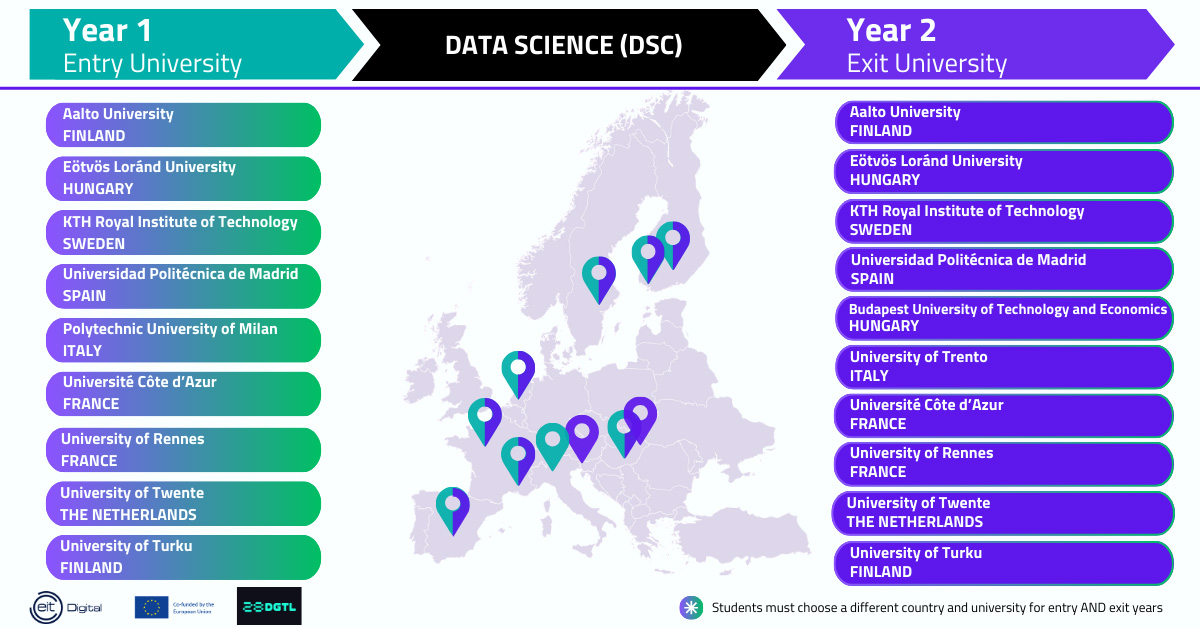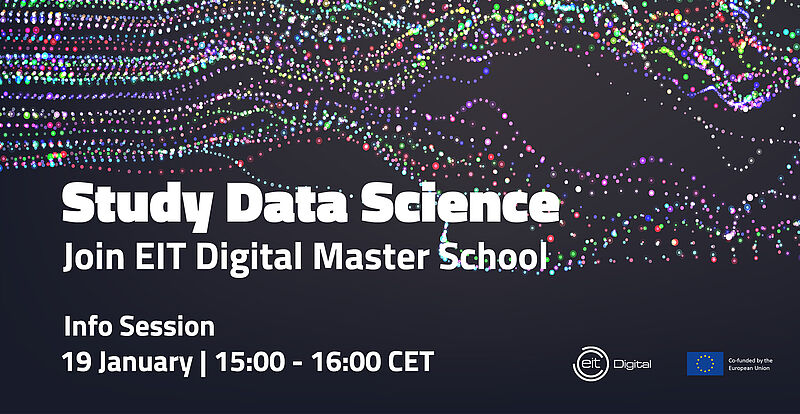Big Data can provide important insights into business processes and uncover opportunities to cut costs and increase efficiency. Furthermore, data analytics enables organisations to effectively target specific audiences and to adapt product characteristics based on customer preferences. It can also be used to improve the decision-making process.
Yet, despite the immense potential of Big Data, many companies are blind to the value of the data they create. It is time for that to change - and our Data Science programme equips you with the skills to drive this change.
Key benefits
Our interdisciplinary master's programme is designed to cover both the theoretical and the practical. We use a combination of face-to-face workshops, group activities, and hands-on exercises to cover everything from the basics of data analysis to such specific skills as:
- Scalable data collection
- Methods of data analysis
- Data capture
- Data storage
- Transferring data
- Visualising data
- Data pricing
- Data protection
The programme also includes ample opportunities to acquire business and entrepreneurial skills and apply your new skills and knowledge towards bringing a real innovative solution to the market and developing a successful business model.
Unlock new career opportunities
Careers in data science are simply exploding. You will leave this programme having the knowledge and skills needed to unlock a range of career opportunities. Our graduates can be found working in open innovation settings and leading technology companies. Some have even gone on to launch their own successful start-ups and consultancies.
Ready to join their ranks? Then apply today and start driving the digital transformation with Data Science!
Is this programme for me?
The Data Science master’s programme is open to applicants with either a Bachelor of Science degree or who are in their final year of study in:
- Computer Science
- Information Systems
- Mathematics
- Statistics
- Electrical Engineering/Electronics
Studies should include at least 60 ECTS in computer science or computer architecture and 30 ECTS in mathematics including calculus, algebra and mathematical statistics.
In some circumstances, relevant work experience may compensate for a lack of relevant degree. If you have such work experience, make sure to include it in your letter of motivation.
How is the programme structured?
All EIT Digital Master School programmes follow the same scheme:
- Students study one year at an ‘entry’ university and one year at an ‘exit’ university.
- The first year is similar at all entry points, with a focus on basic courses that lay the foundation for the chosen technical programme. Students are introduced to business and management during this first year. During the second semester, a design project is combined with business development exercises to demonstrate how technology can be transformed into a successful business with optional elective courses. Students are taught how to prepare and present a convincing business plan.
- In between the first year and the second year, students participate in the EIT Digital 2-week Summer School programme that addresses business opportunities within a socially relevant theme.
- The second year offers a specialisation and a graduation project. The graduation project includes an internship at a company or a research institute and cumulates with a Master thesis having a strong innovation and entrepreneurship dimension.
- Graduates receive degrees from the two universities and a certificate awarded by the European Institute of Innovation and Technology.
To learn more about the I&E minor please click here.


